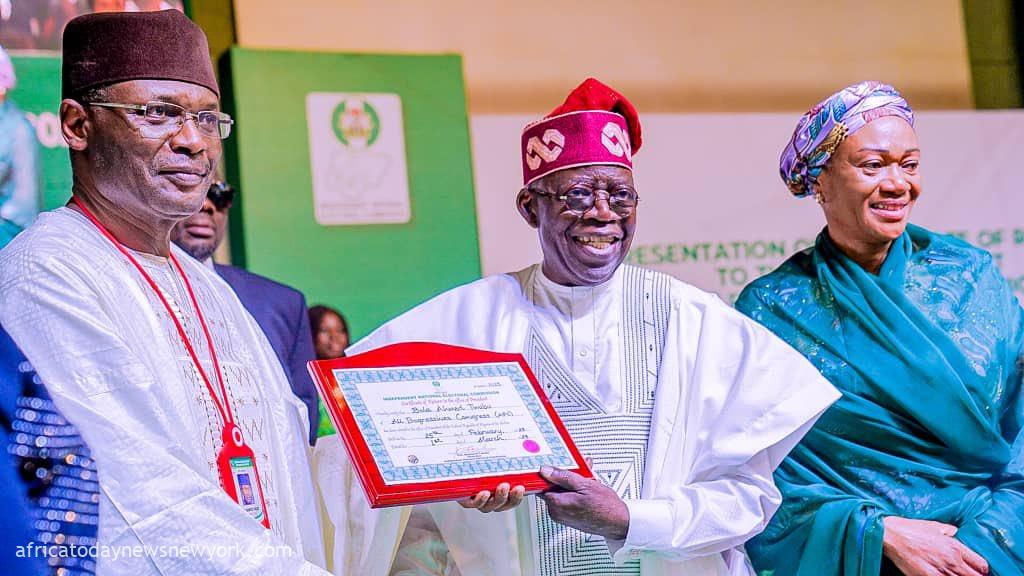The Presidential Election Petition Court (PEPT) sitting in Abuja has struck out the petition filled by the Allied Peoples Movement (APM) challenging the conduct of the February 25 elections wherein Bola Tinubu emerged as the elected president.
The party sought the disqualification of Tinubu on the grounds of unlawful nomination of the Vice President, Kashim Shettima.
Respondents in the suit are the Independent National Electoral Commission, the All Progressives Party, Tinubu, his vice, Shettima, and the purported placeholder, Kabiru Masari.
Chairman of the panel, Justice Haruna Tsammani, who read the ruling, upheld preliminary objections that all the Respondents raised to challenge the competence of the petition.
Justice Haruna noted that since the petition centered on the qualification or otherwise of President Tinubu to contest the presidential election that held on February 25, the APM, ought to have gone to court within 14 days after Tinubu was nominated by the All Progressives Congress, APC.
He held that since the cause of action bordered on a pre-election matter, the APM, lacked the locus standi to challenge Tinubu’s nomination.
More so, Justice Tsammani held that the Supreme Court had earlier decided that a political party does not have the right to challenge a nomination that was made by another political party.
He held that section 131 and 237 of the 1999 Constitution, as amended, made provisions for the qualification or disqualification of candidates in an election.
Read Also: Tribunal Judgment: Why Tinubu Is Not Worried – Presidency
The court noted that the main grouse of the APM was on the alleged invalid nomination of Tinubu’s running mate, Kashim Shettima.
“It is clear that the claim of qualification it non qualification of the the 3rd Respondent (Tinubu) centered on alleged invalid nomination of the 4th Respondent (Shettima).
“It is a pre-election matter,” Justice Tsammani held.
He further held that section 84(3) of the Electoral Act, 2022, stipulated that political parties should not impose qualification criteria on a candidate, except as provided for in the constitution.
According to the court, sections 65, 66, 106, 107, 131, 137, 185 and 187 of the 1999 Constitution, as amended, settled the issue of qualification and nomination of a candidate for an election.
It held that where an election has already been conducted and result declared, the qualification of a candidate could no longer be challenged on the basis of sections 131 and 137 of the Constitution.
The court held that since the APM failed to challenge President Tinubu’s nomination within the constitutionally allowed period, its case, therefore, had become statute barred.
It held that where the constitution has qualified a candidate for an election, no other law can disqualify such candidate except the constitution itself.
The court held that the issue of double nomination as canvassed by the APM, was not a legally cognizable ground for disqualification.
Besides, the court held that it found no reason why Mr. Ibrahim Masari was cited as the 5th Respondent in the petition since he would not in any way be affected by the outcome of the case.
Consequently, it struck out his name from the petition.
The APM had in its petition marked: CA/PEPC/04/2023, argued that the withdrawal of Mr. Masari who was initially nominated as the Vice-Presidential candidate of the APC, invalidated Tinubu’s candidacy in view of Section 131(c) and 142 of the 1999 Constitution, as amended.

